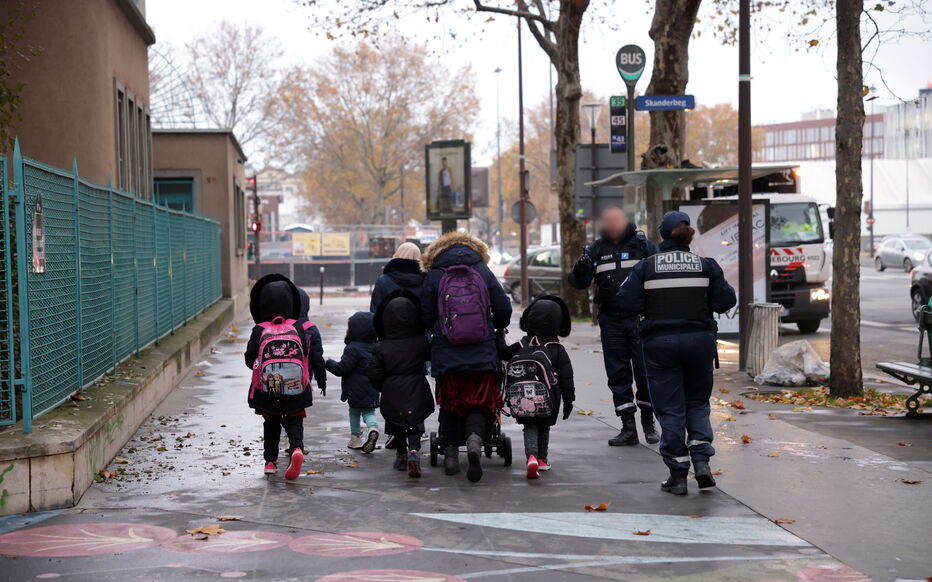Parisian children are being required to walk to school with a police escort due to an increased presence of drug addicts and prostitutes in one district of the French capital.
The police escort has been offered to parents taking their children to school at the Charles-Hermite kindergarten in the 18th arrondissement of Paris following a concerning rise in the number of delinquents seen in the vicinity of the school grounds.
A heightened presence of drug dealers, prostitutes, and drug addicts has increased the feeling of insecurity within the district, with parents fearing for the safety of their young children and relying on the municipal police to safely escort them to and from school.
The police escort has been made available to parents and children for both the morning and evening commute during the school’s opening and closing hours.
Speaking with French broadcaster BFMTV, the Charles-Hermite school admitted the current situation is “difficult” for families but claimed it had “improved over the past fortnight” since the police presence had been initiated.
Parents, however, speaking to the French newspaper Le Parisien, spoke of the “terrifying” conditions, revealing that their children had spoken about how they have witnessed acts of drugs and prostitution. “They know the word crack,” said Priscilla, a mother of one of the school children.
The local mayor, Éric Lejoindre, speaking with BFMTV, acknowledged the initiative is “incredible” and “abnormal.”
The police escort is expected to last until the Christmas holidays before being re-evaluated in the new year. The school, however, has assured parents that the initiative will remain for as long as the parents feel it is needed.
The initiative could also be spread to include other schools if the primary spots for drug deals in the district move and the problem transfers to neighboring schools.
The French capital has an epidemic on its hands regarding a growing number of crack users living on its streets. An estimated number of 40,000 to 44,000 people are regular users of the addictive drug in France, according to the French drugs observatory (OFDT), with more than a quarter (13,000) residing in the Paris area.
A crisis that began in the 1980s and had somewhat eased in the last decade or so has resurfaced, as the northern suburbs of the French capital gentrified, forcing addicts back out into the open, according to the OFDT.
Numerous reports in the French media show how hundreds of homeless crack addicts, often large groups of men, group together in parks and other public spaces in the capital’s northeast. While Interior Minister Gerard Darmanin claims to have taken a hardline approach, ordering police to disperse addicts every few weeks, many critics believe there is a vicious cycle with the problem of congregating addicts never truly dealt with.
“It’s a scenario that will repeat itself over time, in different neighborhoods,” claimed Stéphanie Benoist, a spokesperson for the Villette Village, a collective defending the rights and interests of Parisian residents. She asked BFMTV, “In the 18th and 19th (arrondissements), we’re going to send each other the hot potato for how long?”





